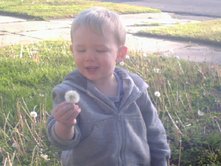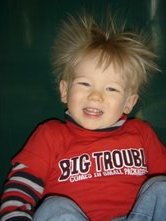
Notice the picture for this week's sermon is taken from "The Shack," by WM Paul Young (see the previous blog for a book review). Notice in this picture that it is snowing, the shack is covered with winter, except on little leaf patch; still green, still living. This is quite symbolic. In the midst of horrible tragedy, hope peaks it's head out in the love of God.
This is the sermon for the first Sunday in Advent, November 30, 2008 at Trinity Church of the Nazarene.
Horrible things happen.
In today’s world, horrible things happen. Not many people will be in line to dispute this claim.
War creates havoc for countries. Violence is committed in the name of justice, innocent people are slaughtered, the unjust die. Families are torn apart as their sons and daughters go off to war.
Genocide is even worse. People die because of the color of their skin. Or like in Rwanda in 1994, people die based on the name of their ethnic group. Bodies are left strewn in the streets. Blood is shed.
Horrible things happen.
Families are torn apart by divorce. One spouse cheats on the other. Families crumble, children are lost.
People go hungry. They find themselves on the street, wishing someone could help them, desiring to eat anything; dirt even. They get worms. They get sick. They die.
Horrible things happen.
People we love die. We watch people we love suffer. We watch our loved ones become depressed. We watch them wish for things they cannot have. We stand at our loved ones caskets and cry out in horror and pain.
Horrible things happen.
There is deep suffering in the world. And it’s horrible. It’s awful. It’s horrendous.
Let’s call it what it is; it’s horrible.
I have a very dear pastor friend who was all excited about the birth of his baby girl… until she didn’t have a heartbeat one day.
People’s responses to this horrible event in my friend’s life were quite stupid. Many people said… “God needed another angel in heaven.” Or, “it must have been what God wanted.” As if God wanted or willed the death of his baby girl.
But this was not my response to him.
I called it what it was. Horribly tragic.
I called it “a tear in the very heart of God.” It’s horrible. God did not like or want this either. I responded to this tragedy by calling it what it was; horribly tragic for them, horribly heartbreaking for me as their friend to suffer alongside of them, and it was horribly sad for God.
Horrible things happen.
I read a book this week (yeah, I know. This week I read a book, go ahead and make fun of me, I’m used to it, and I actually read more than one book this week). Anyway, after you finish poking fun…
This book was called “The Shack” by WM Paul Young.
Young tells us the life story of Mack. He is raised by a father who abuses him, runs away as a teenager, and eventually goes on vacation with three of his youngest children without his wife Nan. Through a series of events out of Mack’s control, his youngest 6 year old daughter, Missy, is kidnapped and presumed brutally murdered. It is very real, it is descriptive, and may be worse to read than watching an episode of CSI.
Mack cries out to God in anger, not understanding why God allowed such a horrible thing to happen to his baby girl. He does not trust God. He is frustrated in the midst of trauma.
And sometimes we cry out to God in our own horrible situations just like Mack or when we see horrible things going on in the world saying, “God, where are you?” And we say things like, “Weren’t you the God who did something so great before… for others? Where are you now that I want something?” We cry out to God, “Why don’t you just crack open the heavens and show us yourself? Why don’t you prove yourself to us, show us who you really are?”
And sometimes what we really mean is, “Do what WE want and save this suffering. Who are you anyway, God, all powerful or non-existent?”
When we feel like God is silent or absent even, we box up God. We get angry God is not acting in miraculous and extraordinary ways. We stop trusting a God who does not act in extraordinary ways, exactly the way we want God to act.
We get mad, just like Mack, for not stepping in and saving our Missys.
Mack cries out to God, “If you couldn’t take care of Missy, how can I trust you to take care of me?” (92).
How true does that ring? How often do we utter the same exact words?
Much like our passage in Isaiah today. The people cry out to God to reveal, like God did in the Exodus event. They cry out for a symbol, like fire, to see God revealed in the world in the midst of their extreme pain and suffering.
If this is not a request for proof of God’s power, I’m not sure what is. “Tear open the skies,” “let your enemies know who you are.” These are all requests to see God’s power—crying out to God to show a great revelation in the world.
They even blame God for hiding. Verse 5 in the NCV translation did not quite hit the depth of the actual language. It is better translated in the NRSV (which is the version I used to check my Greek homework; make sure I translated it right). J It is better translated, “because you hid yourself, we transgressed.” In other words, because you were absent, God, we sinned. They are blaming God for being absent, for not being there, for leaving them alone. They are blaming God for their sins.
But a few verses later… we see the real problem, and apparently Isaiah, speaking on behalf of the people, knows the real problem.
Verse 7 says, “no one worships you or even asks you to help us.”
Ah, see. This makes sense, here. This is the real problem. “No one worships you or even asks you to help us.” Well, duh. Maybe it’s not God who’s absent. Maybe it’s the people who are not worshiping God or asking God for help. Maybe this is the real problem for the people of Israel.
Hmmm, how often are we just like the people of Israel? How quick are we to blame God when the real problem is we turned away from God?
When we look at Mack, he had dropped away from God too. He was blaming God for his 6 year old, Missy’s death.
And the cool thing about this book is that God does tear open the heavens in a revelation.
Once you make it through watching the horrible tragedy unfold (or “The Great Sadness” as the book calls it), you walk with Mack to the shack where Missy was killed.
You watch the blood stained floor transform into the stage where God shows Mack how valuable he is and you watch Mack shed his previous view of God for a relational, loving God he can trust.
When Mack asks God how could he expect God to take care of him when God obviously did not take care of his Missy who was brutally murdered, God says, “Mack, I’m so sorry” and tears stream down God’s face.
Because God was hurt by what happened to Missy too.
Mack sees God's pain. God is hurt and broken because of Missy's death too. No child should suffer like that. And Mack watches as God redeems the horror of his daughter’s murder to draw him closer to God. Not that Missy died in order to bring Mack closer… but that God is so good, God can redeem the most horrendous things, the most horrible things, to bring glory.
Which brings me to ask:
How often do we, right alongside the people of Israel, cry out to God for miracles? How often do we cry out and say, “Do what we want, save this person, stop the suffering, do what we expect in huge, dynamic ways.” How often do we scream out to God for the extraordinary, for the miraculous, just like the people of Israel in this passage in Isaiah?
How often are we like Mack, painful things happen to us and we cry out to God… “How can I trust you?”
We are desperate for hope, desperate to trust our Creator, desperate for answers on how a good God could allow such horrible things to happen in the world.
Today is the first Sunday in Advent, the Sunday where we focus on Hope. We lit the first candle in the advent wreath to remind us of the hope we have in Christ.
And in Isaiah 64, verse 8, is where we see the real hope begin. After verse 7, where they figure out what the problem is—(that THEY are the problem, not God)…. Verse 8 offers hope.
They say, “Lord, you’re our Father.” And they cry out, “we’re clay- you are the potter.”
Basically, the people are finally getting the right perspective. Instead of screaming out blame on God in the midst of horrible, horrendous things and instead of crying out for huge miraculous signs and wonders that involve fire and mountains shaking… they declare God as their Father and make themselves moldable to God.
This is a huge shift.
This is a huge reallocation in thought process.
This is a huge change in perspective... To go from trying to mold God to saying they can be molded by God.
Mack makes this shift in the book too. Mack goes from not trusting God to blaming God for his pain… to learning how to return love to God.
Mack makes that huge shift. Mack has a huge reallocation in thought process. Mack has a huge change in perspective.
Mack begins to be molded like clay in the hands of the potter.
See, the great hope we have, is embedded deep in the perspective that we are to be molded by God.
We are to be molded by our potter, the one we can trust. The one who loves us even when we blame God for not intervening on behalf of our Missys in extraordinary ways.
Our hope this Advent season is found in the God who is present and active in EVERY moment. Whether it is huge and we call it miraculous, extraordinary even. Or even if it’s small, and ordinary…. And we call it common.
Whether it is EXRAORDINARY AND the heavens are torn apart, whether the mountains quake, whether our enemies are proven wrong, whether fires comes… Whether God comes in three persons who sit down to dinner with us, like God does for Mack.
Whether it is COMMON and we gather for worship like we do every week, whether we put a bandage on our finger, whether we breathe, whether we eat… and any other common thing we do.
Whether its an extraordinary moment or a common moment, God is present and active. God is not absent.
This is amazingly hopeful, even in the midst of horrible things we see around us. God is still present and active… in the common times, in the horrible times, and in the extraordinary times.
And the exciting thing about Advent… is that the heavens WERE torn open. The mountains DID shake. God DID come in an extraordinary way.
God became human, became a little, poor baby who gave up power, strength, and control… to show us a better way. To show us how we might BECOME the kinds of people who move mountains and BECOME God’s agents of redemption for all of creation.
The people of Israel asked God to come shake things up and God DID shake things up.
Here we are, today, all shook up… even in the midst of tragedy.
This is the meaning of “Emmanuel,” God with us. God tore open the heavens, gave us a huge, miraculous, extraordinary gift of Jesus Christ.
And the hope, this Jesus Christ brings, is what we celebrate today- on the first Sunday of Advent.
No matter what you are facing today. No matter what horrible things you are going through. No matter what you see around you that makes you cry out.
No matter if you, like Mack, scream… you didn’t break through and act in this moment… how can I trust you? No matter if you blame God, like Mack did.
Remember… God is a God who is present and active in EVERY moment. God is a God who is present and active in the ordinary and in the extraordinary. God is present even tragedy, loving humans, crying alongside of us when babies die (like for my pastor friend) or we lose people we love.
God is just as present in your common moments as God is present in the extraordinary gift of Jesus Christ.
God desires to cradle us in God's arms, as a mother does her child, and heal our wounds.
And God is holding your hand, with tears streaming down God’s face… as you suffer and are in pain… crying out for God to tear open the heavens.
God never left you.
Just open your eyes and look.
God is speaking to us in the same way God speaks to Mack in this book:
God says: “I’m very fond of you.”
God says, “You are special.”
God says, “My love can go beyond even your stupidity.”
Close your eyes as we pray… and let God’s loving arms envelop you.
Prayer:
God of all hope, even in the midst of tragedy, we come before you and confess how we really feel. Sometimes we blame you for our pain. Sometimes we think you don’t care. Sometimes we fear you’re not even there. Forgive us.
Help us to see the tears streaming down your face as you hate the tragedy and pain too. Help us to feel your love for us, even in the midst of trauma and horror. Help us to see you for who you really are, a God of love who’s open arms extend to us.
Help us to feel your arms, cradling around us- loving us for who we are, and help us to feel your love in the midst of thepain we face.
And help us to see you're present in every moment, extraordinary and miraculous like Jesus' birth or even in our common and pain-filled moments.
We love you, Lord.
Amen.














